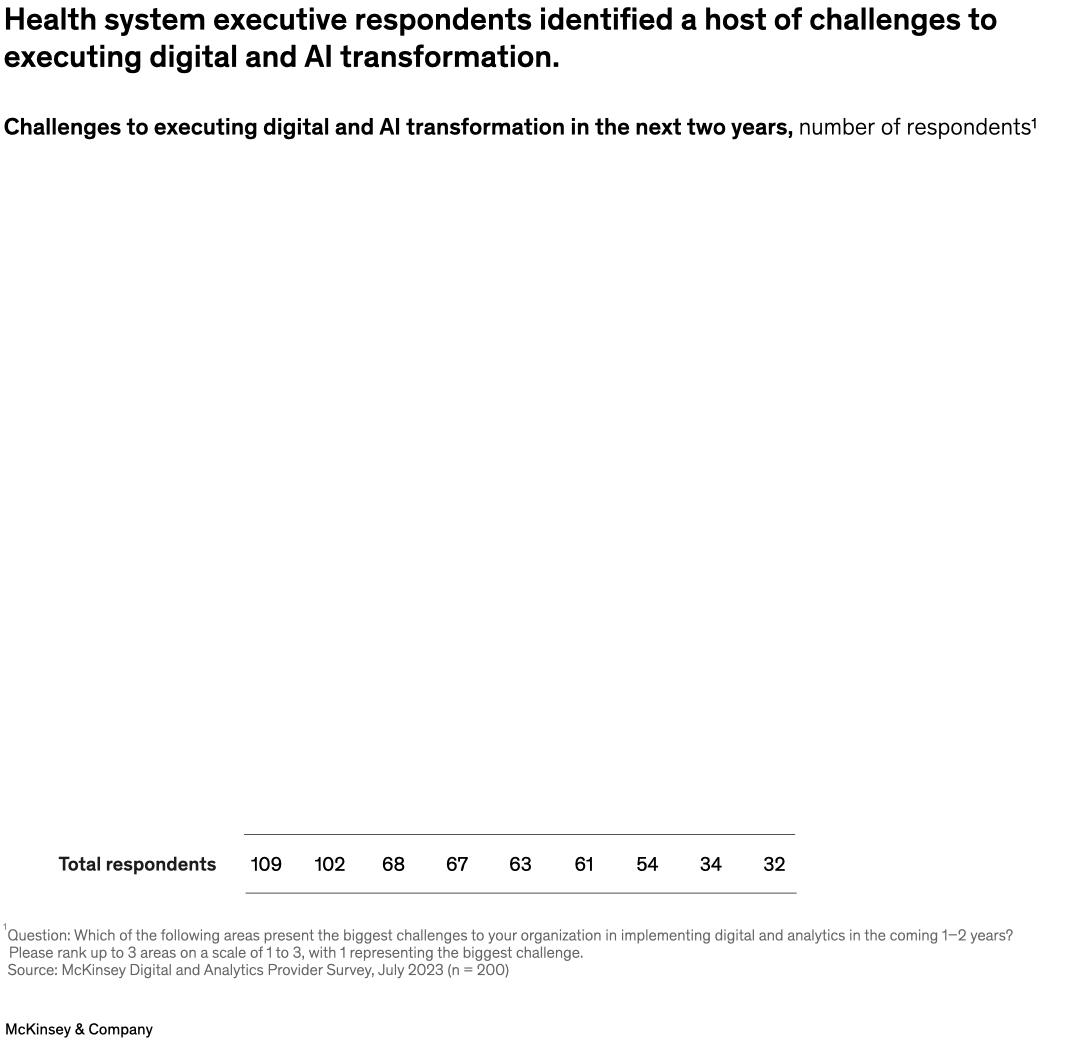To address rising costs, clinical workforce shortages, and other headwinds, health systems are increasing their focus on digital and AI technology. Yet many health system executives indicate their organizations are still not investing enough and lack sufficient resources or planning in this area, say senior partner Karl Kellner and coauthors. Legacy systems and budget constraints are the biggest barriers to digital and AI transformation, according to a survey of 200 global health system executives.

Image description:
A stacked bar graph shows the top 3 ranked challenges to executing digital and AI transformation in the healthcare industry in the next 2 years. The top challenge overall is the difficulty in upgrading legacy systems (109 respondents), followed by budget and capital limitations (102), lack of workforce readiness to implement new technology (68), poor data quality preventing use of new tech (63), challenges with business and clinical digital collaboration (63), difficulty recruiting tech talent (61), lack of clarity on priorities (54), lack of an organizational strategy that sees digital as a priority (34), and lack of awareness about the availability of digital solutions (32).
Footnote: Question: Which of the following areas present the biggest challenges to your organization in implementing digital and analytics in the coming 1–2 years? Please rank up to 3 areas on a scale of 1 to 3, with 1 representing the biggest challenge.
Source: McKinsey Digital and Analytics Provider Survey, July 2023 (n = 200).
End of image description.
To read the article, see “Digital transformation: Health systems’ investment priorities,” June 7, 2024.